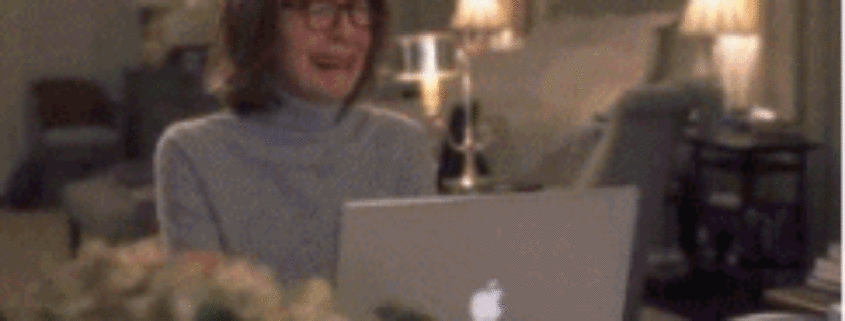Why We Said No, or “No This Time” Doesn’t Mean “No Forever.”
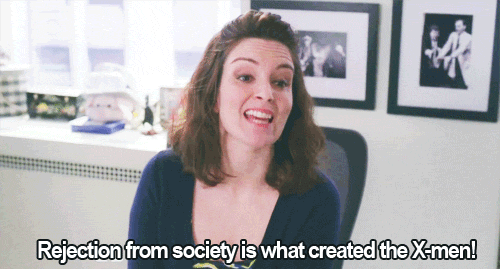
http://media.tumblr.com/6250fd66185b02fe687682d3c1f69f25/tumblr_inline_min6qmW4f61rdqp9d.gif
Creating superheroes, one decline at a time! Silver linings, right?
Recently, this article by Liz Kay has been making the rounds of the internet—and for good reason, it’s a very thoughtful article that really helps a working writer frame the declines they’ll inevitably receive and put them in perspective. We believe in transparency at our publication, so we wanted to take a cue from Liz’s post and let you know Why We Said No, or more to the point why “No This Time” doesn’t mean “No Forever.”
1. No, Really, It’s Not You
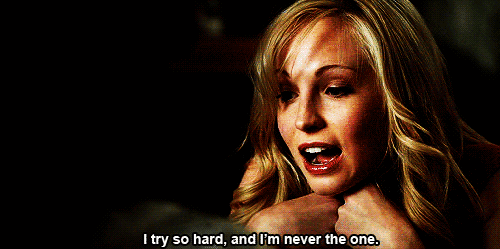
http://24.media.tumblr.com/1207346a12b3b9acbbf15c61b6a470db/tumblr_mywsb7MpGc1sq7yjgo1_500.gif
This is how we feel, every time we see an e-mail from Submittable in our inbox.
Remember that our editorial staff is comprised of students, staff, and alumni of Antioch University’s Creative Writing MFA Program. Meaning: we’re all just like you, working writers, trying to make a go of it. We read blind, with only a few key staff members knowing whose submission is whose. We promise: it’s not personal. The editors who declined your work probably didn’t even see your name until they let your piece go. When we read, it’s all about the work, and the OTHER work that’s in the queue that it’s up against. As the reading period progresses and the few slots we have available fill up, the competition gets fiercer.
2. The Damnable Math of It
Here at the Lunch Ticket headquarters, we just wrapped up the reading period for Issue #5. Between February 1 and April 30, we received 1,321 submissions in fiction, poetry, creative non-fiction, translation, YA writing, and art. A little math (not our strongest suit, but thank goodness for calculators) breaks this down to an average of 220 submissions per category—with fiction and poetry being a little heavier than the other genres. Lunch Ticket publishes between 10-15 features per category—meaning that we accept about 2% of the submissions that come in. So if your piece is in the top 5%, there’s a chance that even if we love it, even if there’s someone on the team advocating for it—it still might not make it to publication, just because of the damnable math of it.
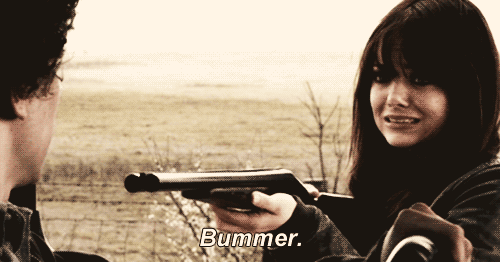
http://31.media.tumblr.com/9d69de952ae86a025b5557300e40dbc4/tumblr_msnwvqA9Q61shv6d5o1_500.gif
3. Timing Is Everything…Or Nothing. We Know, Helpful.

http://31.media.tumblr.com/237f1d1d0aad0dc9d2b089ded5da215f/tumblr_mi0tgpbtiJ1qk9tzro1_500.gif
The timing of your submission can be important. Or not. It’s hard to tell, sometimes, and honestly, a lot of what happens with your submission has to do with the OTHER writers submitting, and their patterns, which we can track, but not always predict. Submissions that come in early in the reading period might mean that you’re waiting longer to hear from us, which can be 3 months, or more, depending. But early submissions mean that all the available slots are open, so strong work submitted early can be a smart submissions strategy. However, a lot of submitters choose to submit at the tail end of submissions, when their work is likely to remain in the forefront of the readers’ minds. The downside to this submission strategy is that the later in the reading period, the less available slots, so you’re vying against more authors with fewer open slots on the line-up.
4. Submissions Are Voted In, Or Out, Democratically
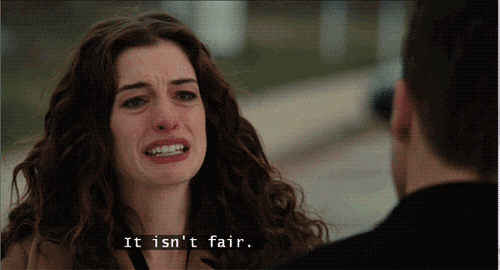
http://25.media.tumblr.com/tumblr_m6gc6o49AE1ryrk94o1_500.gif
Each reading team is made up of 3-5 readers and a genre editor. Additionally, we have a team of “tie-break” readers, as well as the managing editor and editor-in-chief. Occasionally, pieces are bounced between genres—such as a story that might be better suited to the YA category, or a hybrid piece that we bounce to another category for a second opinion. Your work might have reader voting for it, but still might not make the final cut. Why? Maybe your piece is like another story that we’ve already accepted, and the two pieces don’t dialogue with each other. Maybe it got 2 votes and it needed 3 to be accepted. Maybe at the end of the reading period we only had 2 slots available and 3 pieces on the shortlist. Every reading period is different, every set of readers is different, and every submission is different. Whenever time permits, we try to include a personal note to authors whose work almost made it in, to let them know that their submission was on the right track. The long and short of it is, even pieces we love, we sometimes have to let go, and every reading period, we have to make really difficult decisions. If you like a magazine and what they’re doing, trust that the editors are trying to curate the strongest collection for their upcoming issue, and while YOU may be a perfect fit, sometimes the piece you sent in wasn’t the right piece at the right time.
So, we said “No,” because of math and timing and the democratic process? I GIVE UP, LUNCH TICKET!

http://24.media.tumblr.com/8b6953a834a8f5b49c56cb728c774241/tumblr_mxwzbf1UU41qarggxo1_500.gif
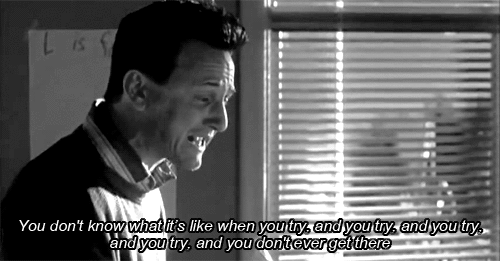
http://25.media.tumblr.com/7a6f114f2a53632edfb1623ac3395793/tumblr_mv8vbikXDD1sj9bl0o1_500.gif
except….
5. When We Say We Want To See More Of Your Work, We Mean It.
Just because we weren’t able to publish this piece, doesn’t mean that we won’t ever publish your work—we understand that every submission is subjective—but when we encourage you to try us again, especially if one of our editors has included a personal note—we mean it. We’re all working writers ourselves, so we know how deeply frustrating this process can be. But we also know that if you keep trying, if your work is a fit for the magazine, you’ll hit the right piece at the right time. And no matter what, remember, just because it didn’t match what we were looking for doesn’t mean that it’s not absolutely perfect for someone else.

http://media.giphy.com/media/ltWkLOc2ew7WU/giphy.gif
So, what can you as a writer, take away from all this? That your work is worth it—always—even if Lunch Ticket, Glimmer Train, Ploughshares, or the West Podunk Review didn’t say yes to publishing it. It’s worth it as long as you believe in it and keep sending it out. Editorial staffs change, readers and editors themselves may have a change of heart, and your work is in a constant state of flux. As long as you’re writing and editing, you’re getting better at your craft, whether or not you know it. And as long as we’re reading and putting together issues, WE’RE getting better at what we do, too. If you like a magazine—whether it’s Lunch Ticket, or any other fantastic literary journals out there—and you think that you’re a fit for them, KEEP TRYING. And if it’s not a magazine you’re invested in, or you think the piece you sent out might need some tweaks, or it’s just a better somewhere else, then keep your chin up, and…..
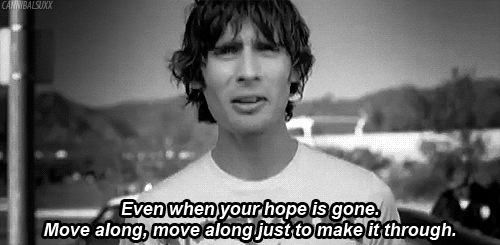
http://25.media.tumblr.com/tumblr_ly8xjtKO271qfxq87o1_500.gif

